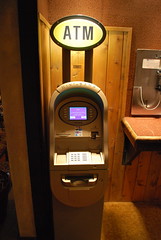 Overdraft policies at banks are always a tricky subject. When a customer tries to cash a check and goes over their funds, what should a bank do? If the bank refuses to honor the check, they are within their rights but the customer may miss their mortgage payment, car payment, rent, etc. If the bank does pay the check and charges a fee to cover it, that could further overdraw the account and lead to more debt. Different banks handle it different ways. Which confuses customers trying to understand how to play by the rules.
Overdraft policies at banks are always a tricky subject. When a customer tries to cash a check and goes over their funds, what should a bank do? If the bank refuses to honor the check, they are within their rights but the customer may miss their mortgage payment, car payment, rent, etc. If the bank does pay the check and charges a fee to cover it, that could further overdraw the account and lead to more debt. Different banks handle it different ways. Which confuses customers trying to understand how to play by the rules.
Now, the Fed is looking to standardize overdraft policies by making Overdraft Fees an "opt in" proposition. This means it will be LESS likely that you'll see excessive fees when you try to buy a stick of gum, but it means you'll be MORE likely to see a rent or mortgage payment bounce without payment. The changes go into effect July 1, 2010. Be sure to contact your bank before then, to make an informed decision.
Friday, November 13, 2009
Overdraft Policies Changing
Subscribe to:
Post Comments (Atom)
2 comments:
I think this is the correct way
If you have another account at the bank, why can't they just transfer enough to cover the check? This happened to me once. I was overdrawn on the checking account by a few dollars (math error on my part), but had a LOT in savings. Still, the overdraft charge was $35.00. How about transferring just the amount to cover the check and send a note (or make a robo-call) to tell you it has been done?
Post a Comment